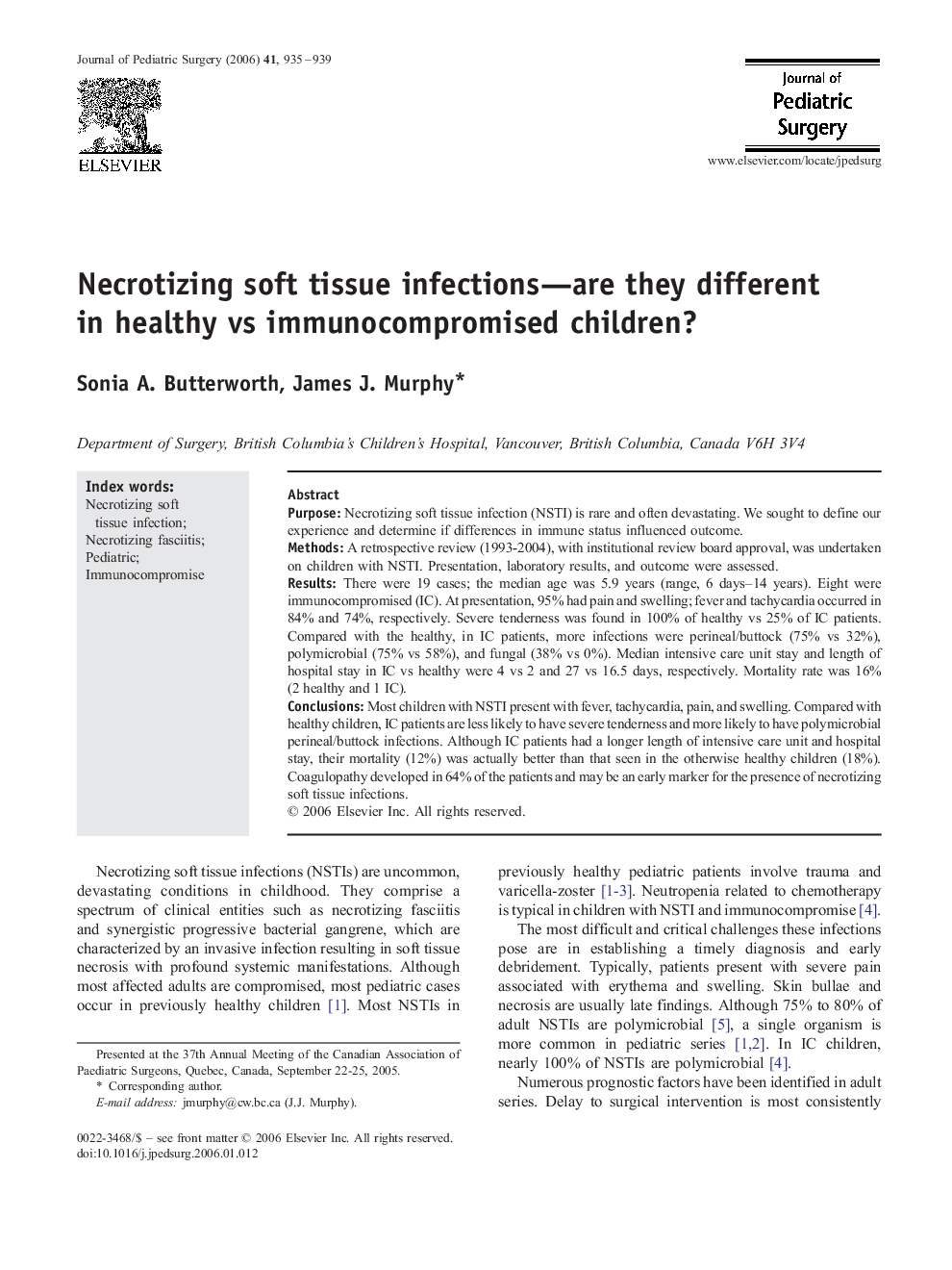| Article ID | Journal | Published Year | Pages | File Type |
|---|---|---|---|---|
| 4160412 | Journal of Pediatric Surgery | 2006 | 5 Pages |
PurposeNecrotizing soft tissue infection (NSTI) is rare and often devastating. We sought to define our experience and determine if differences in immune status influenced outcome.MethodsA retrospective review (1993-2004), with institutional review board approval, was undertaken on children with NSTI. Presentation, laboratory results, and outcome were assessed.ResultsThere were 19 cases; the median age was 5.9 years (range, 6 days–14 years). Eight were immunocompromised (IC). At presentation, 95% had pain and swelling; fever and tachycardia occurred in 84% and 74%, respectively. Severe tenderness was found in 100% of healthy vs 25% of IC patients. Compared with the healthy, in IC patients, more infections were perineal/buttock (75% vs 32%), polymicrobial (75% vs 58%), and fungal (38% vs 0%). Median intensive care unit stay and length of hospital stay in IC vs healthy were 4 vs 2 and 27 vs 16.5 days, respectively. Mortality rate was 16% (2 healthy and 1 IC).ConclusionsMost children with NSTI present with fever, tachycardia, pain, and swelling. Compared with healthy children, IC patients are less likely to have severe tenderness and more likely to have polymicrobial perineal/buttock infections. Although IC patients had a longer length of intensive care unit and hospital stay, their mortality (12%) was actually better than that seen in the otherwise healthy children (18%). Coagulopathy developed in 64% of the patients and may be an early marker for the presence of necrotizing soft tissue infections.
